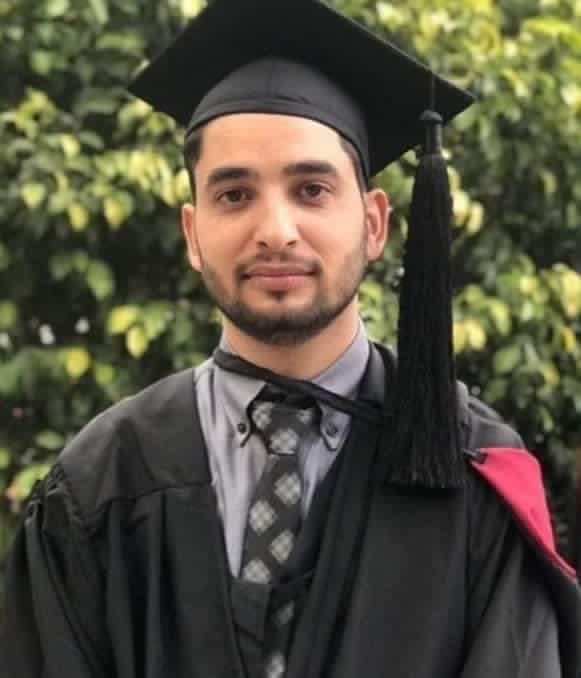MARDAN: A 26 year old doctor from Pakistan’s northern Gilgit Baltistan (GB) region, Dr. Usama Riaz, died on Sunday after contracting the coronavirus while screening pilgrims returning from Iran, the GB government said in a statement.
“The martyred, Dr. Usama, will be awarded a hero award,” the Gilgit Baltistan information department added in the statement.
His death brings the national tally of fatalities to four people. According to a federal portal which was updated Sunday evening, the total number of cases in the country stand at 760.
According to Dr. Shah Zaman, medical surveillance officer at GB screening camp, Riaz was on duty Friday evening and returned home after completing his shift.
“When his family went to wake him up the next morning, they were shocked to see his condition,” Zaman told Arab News on Saturday evening.
Commending the young doctor who hails from GB’s Chilas area and was appointed on a contract, Zaman said Riaz had “performed his duty with utmost dedication.”
President of the Pakistan Medical Association in Gilgit Baltistan, Dr. Zulfiqar Ali, blamed the government for the critical lapse, owing to a dearth of protective gear for health care professionals.
“We confirm that Dr. Usama Riaz has contracted COVID-19, which is the result of the negligence of the provincial government and its health department,” Ali said in a press conference held at the district’s headquarters hospital Saturday evening.

An undated photo of Dr Osama Riaz's graduation cermoney. (File photo)
“Dr. Usama Riaz should be declared a national hero and other doctors should be protected so that they can fight this war against coronavirus effectively,” he said.
Meanwhile, Zaman said 10 other staff members who were on duty with Dr. Riaz were safe from the virus, and added that all medical staff in GB were being provided with facilities similar to those available for doctors elsewhere in Pakistan.
“Dr. Usama Riaz and other doctors had N96 masks, gloves and surgical gowns, the protective gear which is available to doctors elsewhere in Pakistan,” he said, and added that a select committee had been set up to probe the case.
But a spokesperson for the GB government, Faizullah Firaq, conceded that the doctors on the frontline of the outbreak in GB were not provided with the complete protective wear and that his government had requested the federal government for the kits since the outbreak.
“Yes, they had mask, gloves and gowns but not compete kit of protective wear,” Firaq said.
“The province is facing scarcity of ventilators, and we have requested the federal government to help us,” Firaq added. The provincial government has converted 500 rooms in a hotel into a quarantine center on its own expense, he said.
Nearly 2,040 pilgrims have returned to GB from Iran via the Taftan quarantine center with 56 of them testing positive until Saturday, with a majority yet to be tested.
“We have screened around 2,500 international travelers from Iran, Saudi Arabia and other parts of the world and have quarantined them. We are now entering a stage of tests and treatment,” Zaman said.
“Doctors are the first line of defense. We know our role and are prepared for any conditions. Doctors are at risk everywhere in the world, but this is our real test,” he said.
















